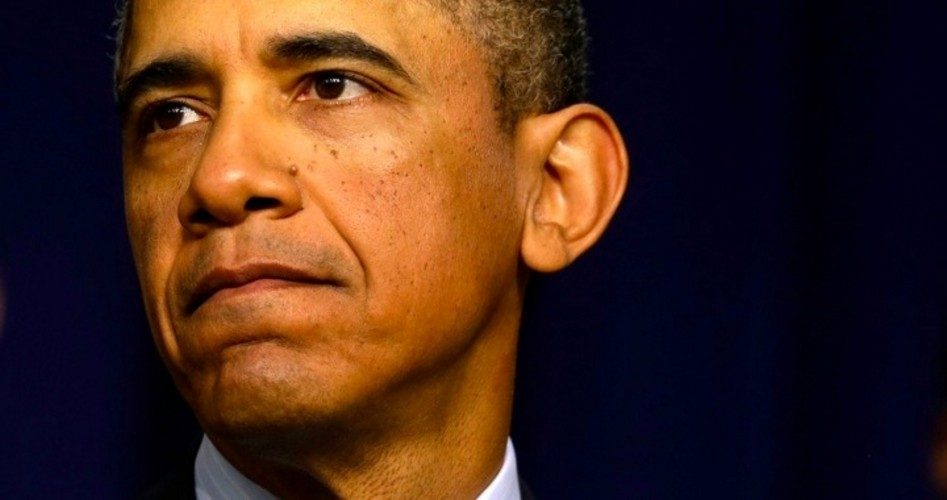
As scheduled spending cuts are set to hit on Friday, congressional Republicans are continuing to clash with the White House on how to address impending cuts. Republicans are accusing President Obama of “campaigning” and are urging him to help Congress find an alternative to the spending cuts rather than acting as a “road-show president.”
Today, President Obama is making an appearance in Newport News, Virginia, a major military community, to address the impact that the Pentagon cuts will have on the shipbuilding facility. Likewise, President Obama’s Cabinet secretaries are continuing to issue warnings about the impact of the so-called sequester if the scheduled $85 billion in cuts take effect on March 1.
The sequester, which was originally supposed to kick in January 1 and cut projected federal spending by about $109 billion per year, was delayed two months by lawmakers during the fiscal cliff negotiations. President Obama, who had initially proposed the sequester as part of the 2011 debt ceiling deal, is now attempting to delay it again. And he is in full campaign mode to do so.
House Republicans are calling out the president for taking a greater interest in campaigning than in helping to resolve the issue. Fox News reports, “House Speaker John Boehner and his deputies, emerging late Monday to field a few questions from the press, said the Virginia stop shows Obama is more interested in scoring political points than making a deal.”
House Republican Whip Kevin McCarthy has nicknamed President Obama a “road-show president.”
Furthermore, House Republican Leader Eric Cantor of Virginia asserts that President Obama is using his state visits to offer a “false choice” between passing tax increases or allowing steep cuts to take place. But the president contends the Republicans are holding up his proposal, which includes a mix of cuts and tax increases.
Republicans argue that there is still time to replace the sequester with cuts that make sense without involving tax hikes.
“If the president was serious, he’d sit down with (Senate Democratic Leader) Harry Reid and begin to address our problems,” Boehner said.
Senator Tom Coburn of Oklahoma suggests that there are two simple steps to lessen the blow of the looming budget cuts — stop hiring and stop traveling.
In a letter to the White House, Coburn called for a “hiring freeze” on non-essential positions, pointing out that despite dire warnings about Friday’s budget cuts, the Obama administration continues to advertise for an array of “low priority jobs,” including a staff assistant to answer phones for the Labor Department and a policy coordinator to set up meetings at the Department of Health and Human Services. Both of those advertised positions pay up to $81,204.
Coburn’s letter also urges the administration to cancel a 100-city tour that was set up to connect federal officials with local leaders.
According to Coburn, President Obama is exaggerating on the potential impact of the cuts. Fox News reports:
Coburn disputed claims that the cuts automatically mean customs agents, Defense civilian workers and food inspectors will have to be furloughed or laid off, as the administration has warned. Perusing the roster of federal job openings, he listed 10 positions that “could save as much as $1.4 million” — money that could be directed toward saving other jobs, he said.
Coburn contends a hiring freeze would help to save some significant costs.
“Instituting such a hiring freeze and re-assigning any of the necessary duties associated with each to current employees will allow federal agencies to adapt to the current fiscal realities without laying off or furloughing civil servants who are performing truly critical or absolutely necessary functions,” Coburn wrote.
Democrats argue that President Obama is unable to fix the problem and that the only way to avoid the sequester is for Congress to pass a “balanced” package to help avert the automatic cuts and replace them with the deal proposed by the White House.
“The longer these cuts are in place, the bigger the impact will become,” Obama said, adding that the scheduled cuts could be turned off “with just a little bit of compromise.”
Despite the fervor of the current debate, Forbes notes that the debate over the sequester is reminiscent of nearly every other spending debate that has unfolded between Congress and the White House: Politicians who support spending cuts are demonized, prompting them ultimately to cave on the issue.
“Members of Congress who would otherwise like to cut spending know they’re going to take a beating from the media and special interests,” concludes The Cato Institute’s Tad DeHaven. “Few politicians are willing to take that heat. Fewer still can even articulate why spending cuts and smaller government are good.”
As a result, the United States continues to be plunged into economic disaster. Forbes writes:
This basic storyline — played out time and time again — is directly responsible for our nation’s $16.5 trillion debt, its soaring deficits, its unfunded liabilities and its inability to sustain anything resembling a real economic recovery. In fact the $630 billion tax hike associated with the recent “fiscal cliff” deal is the latest example of our economy paying the price for politicians’ refusal to rein in spending.
Like Senator Coburn, Forbes contends that the impact of the budget cuts is being greatly exaggerated. On the other hand, President Obama has said that the sequester would be “a huge blow to middle-class families and our economy as a whole,” and would be “devastating.”
But the Wall Street Journal seems to disagree, noting, “Federal domestic discretionary spending soared by 84 percent with some agencies doubling and tripling their budgets,” in Obama’s first two years in office. Therefore, the sequester would scale back just one in every six dollars of discretionary spending increases since 2008. And spending in 2008 had already been “tremendously inflated — having increased by more than 60 percent over the previous eight years,” observes Forbes.
Worse than the unfounded hysteria surrounding the sequester is the fact that both Boehner and Obama are attempting to blame the sequester on the other when in reality, they both supported the sequester during the 2011 debt ceiling debate.
“The debt ceiling deal in 2011 was agreed to by Republicans and Democrats, and regardless of who came up with the sequester, they all voted for it,” U.S. Rep. Justin Amash (R-Mich.) said recently. “So, you can’t vote for something and, with a straight face, go blame the other guy for its existence in law.”
Photo of President Obama: AP Images



